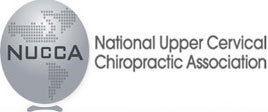Trigeminal Neuralgia (TN) is a disorder that is characterized by excruciating facial pain on the right side in the cheek or jaw. When attacks come they feature severe stabbing and sharp pains that may last for minutes, hours, days or even years. This condition affects more women than men and tends to manifest itself in people over the age of fifty.
While a mild attack of Trigeminal Neuralgia will probably result in just a few slight twinges of pain, a severe episode can leave sufferers feeling as though exposed electric wires were running through their faces and shocking them continually.
These attacks may last from several seconds to a minute or longer, and occur repeatedly for days, weeks, months and years at a time. Although some people might experience short periods of remission, these instances will become less common as the disease progresses.
Most cases of Trigeminal Neuralgia affect just one side of the face, except in rare instances where both sides may be afflicted (one side at a time). This disorder is a chronic and progressive condition that affects the fifth cranial (trigeminal) nerve, one of the largest nerves in the head.
Talking, chewing, or swallowing intensify the pain. That makes it extremely difficult for the sufferer to cope, which is why this disorder is often referred to as the ‘suicide disease’.
It is not fatal, but Trigeminal Neuralgia is generally considered to be the most painful affliction known to medical science.
The pain of this disorder starts with the trigeminal nerve, located deep within the brain.This nerve carries sensation from the brain to various parts of the face through three smaller branches.
The pain originates when the trigeminal nerve comes into contact with an artery or vein at the base of the brain. That exerts pressure on the nerve, causing it to “misfire”.
Stress or nerve damage can trigger the pain, but compression brought on by a tumor, multiple sclerosis or a stroke that affects the lower part of the brain might also cause this condition. Eating, drinking, smiling, brushing your teeth, talking, shaving: Any of these actions can trigger a painful episode.
How Can Upper Cervical Chiropractic Care Help Those with Trigeminal Neuralgia?
National Upper Cervical Chiropractic procedures utilize a gentle touch and a controlled adjustment to the Atlas, the first vertebra of the spine. This adjustment can correct any misalignments in the spinal column which may irritate the nerves that run from the brain and spinal cord to the blood vessels in the head.
One of the major problems with Trigeminal Neuralgia is that the pain worsens and becomes more frequent over time. That means that sufferers will require higher dosages of medication to manage their pain. Eventually, those pain relievers lose their ability to have any major affect on the pain.
Misalignments in the upper cervical spine which are the result of some type of trauma to the region can cause compression on certain nerves (cranial nerve V) that may result in the type of pain experienced by Trigeminal Neuralgia sufferers.
The misalignment can easily be detected through diagnostic testing. That includes precision x-rays and Thermographic/Surface EMG scans.
By applying NUCCA procedures, a chiropractor skilled in this technique has the ability to relieve compression on the damaged nerve.
After correcting the misalignment in the upper cervical spine, normal communication is re-established with the brain and any pressure on the affected trigeminal nerve is removed. That alleviates the pain.
Post-adjustment x-rays and Thermographic/Surface EMG scans are taken to ensure that a successful spinal correction has taken place.
Click here to see Testimonials from our patients.
If you or someone you know has already tried other treatments for Trigeminal Neuralgia without achieving the level of success that you or they want, why not try NUCCA recommended and approved Upper Cervical Care chiropractic treatments? Relief may be just a phone call away.
Call the office today at 425-437-9974. Dr. Schallmann at Back In Balance Chiropractic will be glad to discuss treatment options with you.







